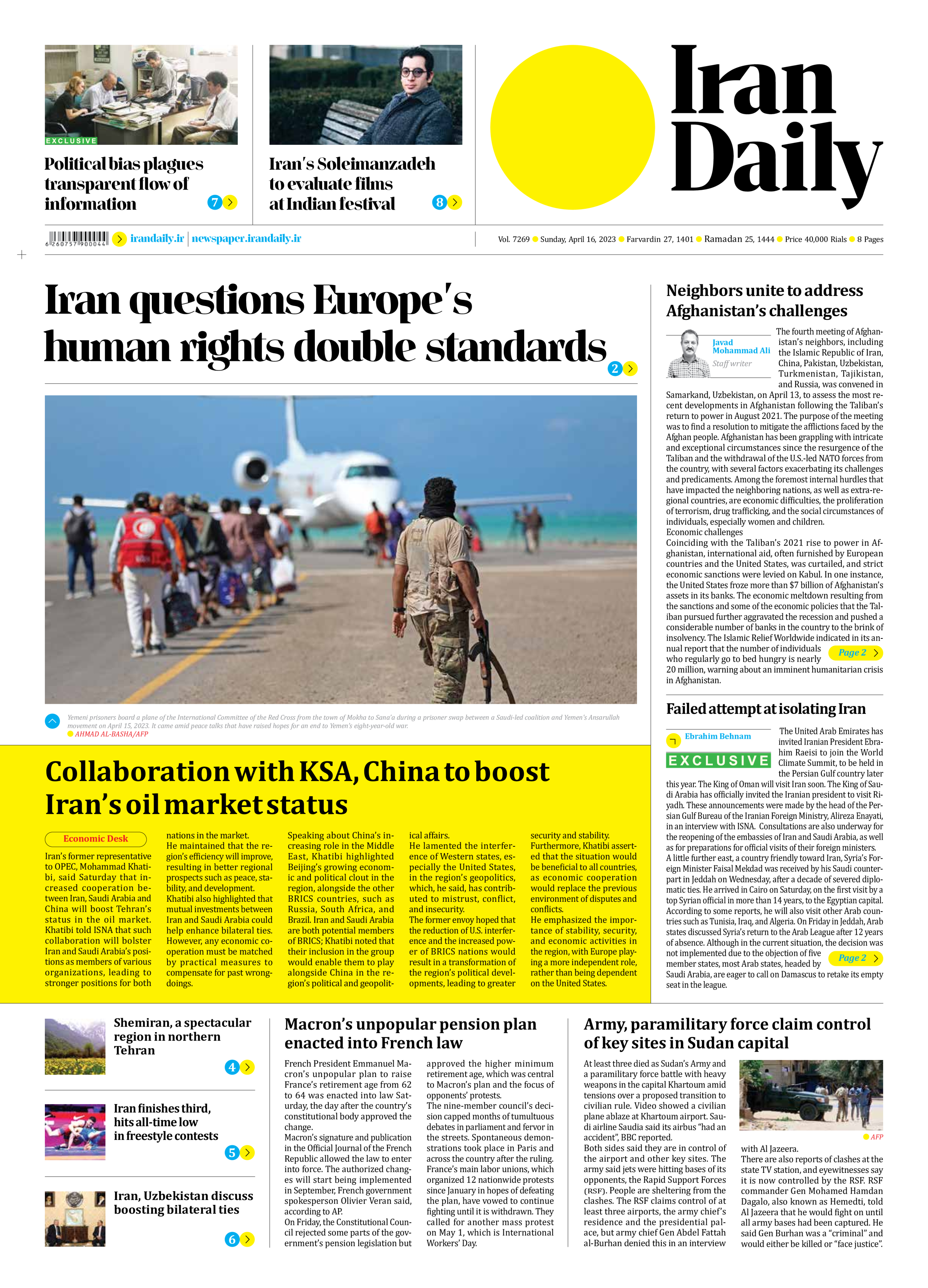
Failed attempt at isolating Iran
Ebrahim Behnam
The United Arab Emirates has invited Iranian President Ebrahim Raeisi to join the World Climate Summit, to be held in the Persian Gulf country later this year. The King of Oman will visit Iran soon. The King of Saudi Arabia has officially invited the Iranian president to visit Riyadh. These announcements were made by the head of the Persian Gulf Bureau of the Iranian Foreign Ministry, Alireza Enayati, in an interview with ISNA. Consultations are also underway for the reopening of the embassies of Iran and Saudi Arabia, as well as for preparations for official visits of their foreign ministers.
A little further east, a country friendly toward Iran, Syria’s Foreign Minister Faisal Mekdad was received by his Saudi counterpart in Jeddah on Wednesday, after a decade of severed diplomatic ties. He arrived in Cairo on Saturday, on the first visit by a top Syrian official in more than 14 years, to the Egyptian capital. According to some reports, he will also visit other Arab countries such as Tunisia, Iraq, and Algeria. On Friday in Jeddah, Arab states discussed Syria’s return to the Arab League after 12 years of absence. Although in the current situation, the decision was not implemented due to the objection of five member states, most Arab states, headed by Saudi Arabia, are eager to call on Damascus to retake its empty seat in the league.
In Syria’s neighborhood, Lebanon’s Hezbollah, another ally of Iran, as well as other resistant groups, such as Hamas and Islamic Jihad in Palestine, have upset the balance of power in the occupied territories and have demonstrated their ability to deter Israel’s attacks.
Furthermore, diplomatic visits to Tehran and vice versa are underway. Political ties between Iran and China are stronger than ever. Tehran and Moscow have strengthened their political and economic relations.
All these developments are yet another sign of a tangible reality: Contrary to the wishes and efforts of some Western countries in cooperation with Israel, the Islamic Republic of Iran is not only not isolated, but has gained a greater role in regional relations.
This fact was also reflected in “The Times of Israel,” which emphasized that “Iran seeks to build a new Middle East”. According to the Israeli media, “The axis supported by Beijing-Tehran, in line with reconciliation and strategic alliance with Sunni Muslim countries, creates important security challenges for Israel and the United States”.
The current position of Tehran and its friends in the region is, on the one hand, the result of resistance to external pressures and, on the other hand, it is due to the revelation of lies and fabricated accusations against Tehran, which were propagated in the form of Iranophobia.
In fact, regional and extra-regional efforts to leave Tehran out of regional equations and relationships have been a failure because they were not based on reality.







